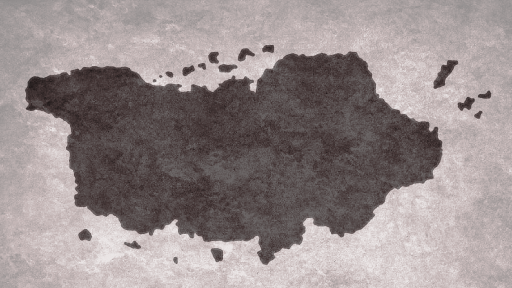Deucracia
Mythology & Lore
Dalharnan: Harvest, plenty
Aigusan: Water, oceans
Sorehlas: Sun
Guèrraltan: War
Aimarsta: Love, peace
Luana: Moon
Mortstla: Death, resurrection
Caçard: The hunt
Cèuca: Sky, air, clouds, rain
Caòste: Chaos, disarray, darkness
Aigusan: Water, oceans
Sorehlas: Sun
Guèrraltan: War
Aimarsta: Love, peace
Luana: Moon
Mortstla: Death, resurrection
Caçard: The hunt
Cèuca: Sky, air, clouds, rain
Caòste: Chaos, disarray, darkness
Divine Origins
As the Ardada split off and formed their own packs in the early days of Malplenan, their beliefs began to develop separately, and packs of Ardada worshipped what they saw as providing for them in their area. This remained for centuries until the Ardada became a centralized force. People spread the beliefs of their god, and they were accepted as other Ardada as they explained what their god provided to them. A pantheon of ten made gods was eventually formed, and accepted as the ten true gods of Malplenan. While many other minor dieties exist and are worshipped, they are generally more localized. As the Ardada Empire formed the religion became more organized and centralized. A religious hierarchy was formed which trained priests of the faith and spread the religion to distant lands.
Cosmological Views
The ten gods are said to have come from a genesis event known as the Great Fòrmas, where a single mystical unfathomable power took a part of themselves to create ten facets of themselves that could together form life. Aigusan would form the seas, Sorehlas created light, Cèuca made the sky, Dalharnan planted fauna and created creatures that would feed from it, while the remaining gods would create the conditions that ruled the way of life for the Ardada and all the other intelligent species of Malplenan. Together, they then created sentient life. From then on most of them sat back and observed, only taking action to ensure their facets flourished in the world. Hundreds of years after the religion was formed, Dalharnan appeared in Malplenan, to ensure that his people flourished. He is thought to have united the Ardada and created the first nation on Malplenan thanks to his ability to create conditions where crops flourished and people could become more settled in cities.
Tenets of Faith
The pantheon of ten is worshipped differently, but all are accepted by followers of Deucracia. Following of each god can be regional, with certain gods favoured in some regions or towns over others. While temples to all gods exist, many are constructed to worship specific Gods.
While there are often debates on the relative importance and place of the gods in society, it is heretical to dismiss the existence of any of them. Temples should be created and maintained for the gods. While you do not need to have a temple for every god, there should be a place for general worship. Reliefs or statues should be created to represent the pantheon of ten at these places of worship.
The gods do not dictate how people live, that is considered to be up to the individual. All the gods ask for is their worship and following of rituals. You can make requests from specific gods, but then if your request is granted it is expected that you return the favour, either through sacrifice or through offerings.
People are expected to perform rituals in their own homes daily towards the gods. These are largely just simple prayers.
Ethics
Worshipping the gods and providing sacrifice and bounty to them is considered the best you can do. Few actions outside of this matters to the gods. You must perform certain rituals, and attend religious events to be a proper follower, and the gods will respond by blessing your life.
Priesthood
The religion has a complicated priesthood which has largely been run by the government of the Ardada Empire. With the split of the Ardada Empire the authority of the priesthood became fractured.
The religion's priesthood was initially organized by the Ardada Empire appointing high priests for each god, and an oracle who was considered the messenger of the gods. His messages are thought to have been imparted by the gods. Underneath that there is no consistent hierarchy. Each leader can appoint acolytes and priests as arrange them as they feel is fit. There is no formal consistent priesthood.
After the split of the Ardada Empire the leaders of the newly formed seven nations all claimed to be able to carry the tradition of religious appointments, thus the number of high priests and oracles greatly expanded. Religious authority has been a point of contention since. The Holy Deucracian Empire is unique because rather than having an oracle they claimed the authority of one of the gods himself, Dalharnan. This figure has been trying to unite the Deucracian religion under himself but has met lots of resistance.
Political Influence & Intrigue
The religion has little influence on the government in six of the seven nations that resulted from the split of the Ardada Empire. Only the Holy Deucracian Empire is ruled religiously. In all the other nations the leader or leaders have authority over the religion.
Permeated Organizations
Related Myths



Comments